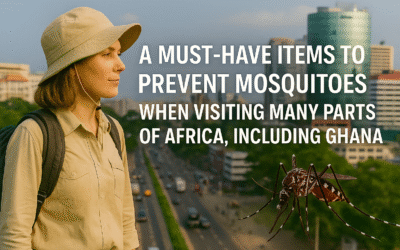The Motivations Behind Seeking Greener Pastures
The pursuit of greener pastures abroad is a phenomenon driven by a myriad of motivations, often shaped by economic, social, and political factors. One significant aspect that prompts individuals to leave their home countries is the rising unemployment rates that severely limit job prospects. In many developing nations, the scarcity of job opportunities compels citizens to look towards regions like America, Europe, and Asia, where the job market is more dynamic and offers increased potential for career growth. According to recent studies, many migrants are drawn to areas that promise more stable employment conditions, elevating the overall quality of life.
Additionally, the quest for a better quality of education significantly influences the decision to move overseas. Access to renowned educational institutions in America and Europe appeals to many individuals seeking to enhance their skill sets and qualifications. These opportunities often lead to superior job placements and career advancement back in their home countries or wherever they choose to settle. Educational mobility serves as a vital motivator for students and professionals alike, who aspire to gain international exposure and expertise.
Another important factor is the availability and quality of healthcare systems. In regions where healthcare services are lacking or inadequate, individuals are prompted to migrate to countries where comprehensive healthcare is accessible. This inclination is especially prevalent among families seeking better healthcare for their children and elderly members. Furthermore, political instability in some areas drives migration as individuals seek more secure living conditions and governance that protects their rights and freedoms.
Overall, the desire for economic stability, quality education, accessible healthcare, and improved social conditions fuels the growing trend of relocating to America, Europe, and Asia in search of a better life. As individual experiences and statistical data illustrate, these motivations play a critical role in shaping human mobility across the globe.
Understanding the Job Markets: A Comparative Analysis
The job markets in America, Europe, and Asia exhibit unique characteristics shaped by economic conditions, cultural factors, and regulatory environments. Each region provides distinct opportunities for skilled labor, and understanding these markets is crucial for professionals considering relocation. In America, sectors such as technology, healthcare, and renewable energy are experiencing robust growth. The U.S. tech industry, in particular, remains a global leader, with companies continually seeking talented individuals. However, navigating the visa regulations can be complex, often requiring sponsorship from employers.
In contrast, Europe presents a diverse job landscape influenced by the European Union’s regulations and member states’ policies. The demand for skilled workers varies significantly across countries; for instance, Germany’s engineering and manufacturing sectors are thriving, while the UK remains strong in finance and creative industries. Salary expectations can vary widely, often reflecting the cost of living in different countries. Furthermore, visa regulations for non-EU citizens can be stringent, necessitating careful navigation through application processes.
Meanwhile, Asia is witnessing unprecedented growth in industries such as technology, manufacturing, and healthcare, particularly in countries like China and India. The demand for skilled labor continues to rise as economies shift towards innovation and sustainability. Salary expectations may be lower than in Western countries; however, the lower cost of living in many Asian nations can present attractive opportunities. Cultural nuances also play a significant role in job satisfaction and workplace dynamics. For example, in many Asian cultures, teamwork and harmony are prioritized, influencing management styles and employee interactions.
By assessing the overall employment landscapes, including key industries and cultural dynamics, individuals can better understand where their skills may be best applied, ultimately guiding their decisions for exploring greener pastures abroad.
Navigating Visa and Immigration Processes
Relocating to a new continent, whether it be America, Europe, or Asia, requires careful consideration of the visa and immigration processes involved. Each region has distinct immigration policies that serve a variety of purposes, ranging from employment to educational pursuits, and understanding these can be challenging yet crucial for prospective migrants. The types of visas available vary widely; for instance, work visas, student visas, and family reunification visas cater to different needs. Familiarity with these categories is essential for determining the appropriate path.
The application procedure generally involves several steps, including gathering necessary documentation, submitting an application, and often attending an interview. Each visa type has its specific requirements, such as proof of financial stability, sponsorship letters, or academic credentials, which necessitates meticulous preparation. Furthermore, navigating the bureaucratic landscape can present obstacles; different countries implement distinct administrative protocols that can lead to confusion and delays.
Language barriers often compound these challenges, as applicants might struggle with intricate legal language and terminologies that are prevalent in immigration documentation. It is advisable to seek assistance from immigration consultants or legal professionals who can provide guidance tailored to the applicant’s specific circumstances. They can help translate complex language into more digestible terms, thereby facilitating a smoother application process.
Another critical consideration is the expected timeline for visa approvals, which can vary significantly depending on the visa type, the applicant’s nationality, and current processing capacities of immigration offices. Delays might occur due to increased application volumes or changes in immigration laws. Therefore, understanding not only the procedural intricacies but also the cultural context surrounding immigration policies is vital for a successful transition abroad.
Making the Transition: Preparing for Life Abroad
Embarking on a journey to live overseas offers a unique opportunity to embrace new experiences and broaden one’s horizons. However, a successful transition requires meticulous preparation. Key aspects to consider include financial planning, housing arrangements, understanding local customs, and adapting to new cultural environments. Adequate financial planning is essential; researching the cost of living in the destination country helps to create a realistic budget that accommodates daily expenses, housing, and unforeseen costs.
Finding suitable housing is another critical step in preparing for life abroad. Prospective expatriates should explore various housing options, such as rentals, shared accommodations, or purchasing property, depending on their intended length of stay. Websites, local real estate agents, and online expat forums can serve as invaluable resources in this search. It is also wise to familiarize oneself with local regulations and customs associated with housing, as norms may differ significantly from one’s home country.
Understanding the cultural landscape is integral to easing the adjustment process. Each region possesses its unique customs, traditions, and social norms, which can be pivotal in forming connections with locals and reducing culture shock. Engaging with local customs, such as learning basic phrases in the native language, can facilitate deeper interactions and pave the way for a smoother assimilation.
Creating a robust support network greatly contributes to the adjustment process. Potential expats can connect with fellow expatriates through online communities or local groups that share common interests or backgrounds. Engaging with these networks not only offers a sense of belonging but also provides practical advice for navigating daily life challenges. Lastly, having realistic expectations regarding the difficulties of adapting to a new environment will equip individuals with the mindset necessary to face potential obstacles, ultimately making the transition more manageable and enjoyable.











0 Comments